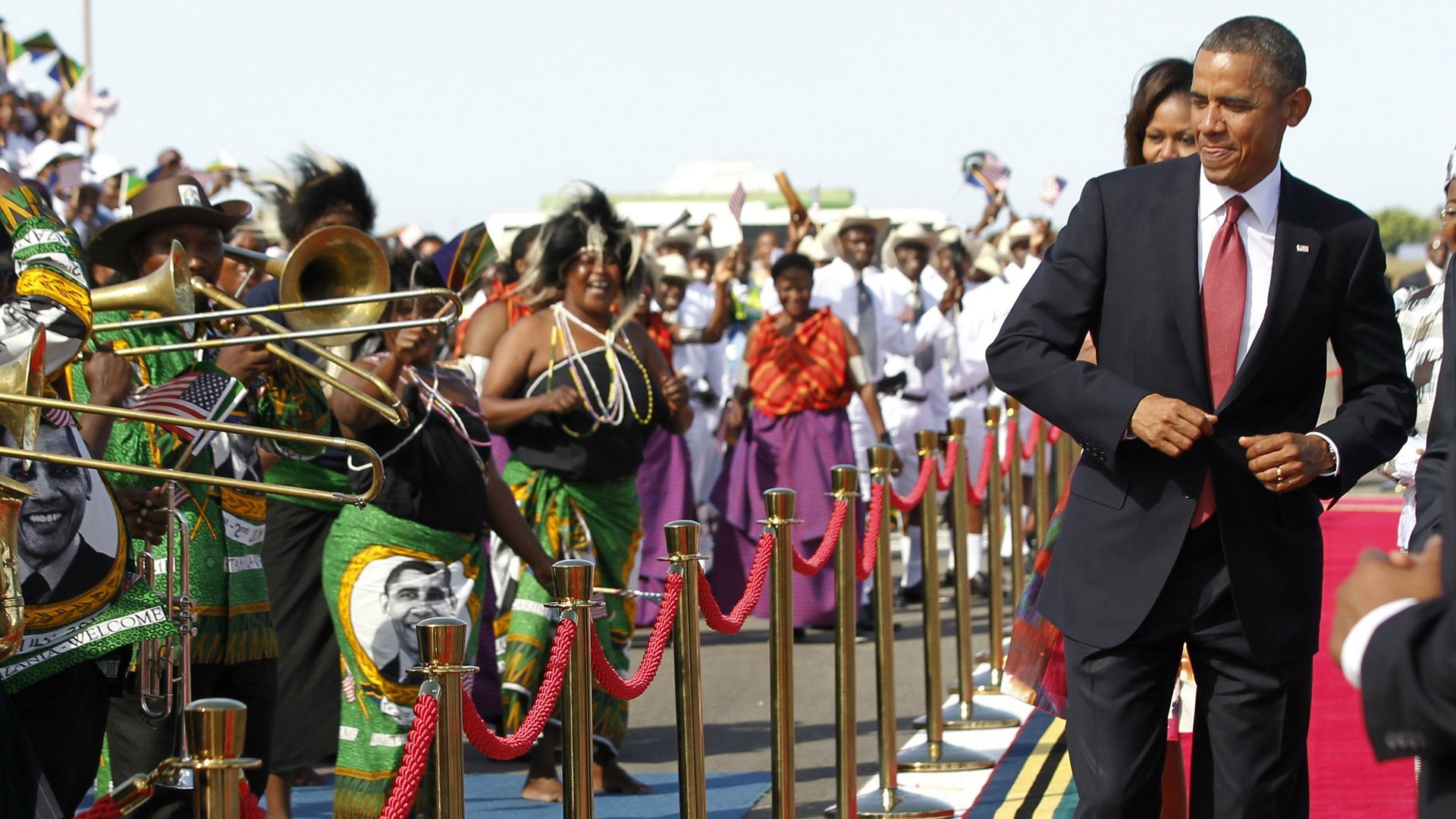Why Africa loves Obama—and it’s not why you might think
As Barack Obama makes what is likely to be his last presidential trip to Africa, an interesting narrative has emerged about his relationship with the continent: He has been a huge disappointment. The first black president—or the first Kenyan-American president, as he describes himself—has done less for the land of his father’s birth than his predecessor, George W. Bush, his critics say.


As Barack Obama makes what is likely to be his last presidential trip to Africa, an interesting narrative has emerged about his relationship with the continent: He has been a huge disappointment. The first black president—or the first Kenyan-American president, as he describes himself—has done less for the land of his father’s birth than his predecessor, George W. Bush, his critics say.
His signature policy, Power Africa, a plan to help electrify the continent which he launched in Cape Town in 2013, has “sputtered,” according to a recent New York Times report. Direct financial assistance, which dramatically increased during president George Bush’s time in office, has fallen off as Obama has chosen a “trade not aid” approach.
But if you ask Africans about Obama, there is no debate: they just love the dude.
What explains this disconnect? Let’s be honest. Obama’s election as America’s first black president and his family connections to Africa will forever afford him tremendous good will on the continent. But Africans’ deep affection for Obama is not based entirely on his race or ancestry.
It’s his engagement with the wider world—and not just Africa—that sets him apart in the minds of many. More than any previous US president, Barack Obama exhibits a true global sensibility. Yes, he is first and foremost an American and he acts to advance his country’s interests. But his recognition that there are other perspectives in the world is what makes him unique. Both stylistically and substantively, that has come to endear him not only to Africa but many other people across the world.
Take, for example, the way he pronounces “Pakistan.” I have always been struck at how it sounds mighty close to the way Pakistanis themselves say the name of their country.
Or how when he went to Jamaica and introduced himself with a “Wha gwaan.”
Or here, when he takes to the dance floor in Kenya to the sounds of Swahili music.
These nuances are not missed beyond the US. They show an American leader genuinely interested in being a partner with the rest of the world and connecting with their way of life.
So when Africans see Obama, for example, make a case for gay rights under the law while not being self-righteous about it, the respect he shows is appreciated—even if some strenuously disagree with him.
People who argue that Obama has been a disappointment to Africa view the situation from a very different perspective. Politico suggested that Obama’s decision not to direct vast sums of direct aid to Africa are proof of his failure: “Africa’s a continent where politics is all about patronage, and a president of the United States with Kenyan roots seemed to many Africans like the ultimate political patron.”
Well, not really mate. The Obama years have coincided with the extraordinary shift in Africa’s thinking about the present and the achievable future. Africans, like no other time before us, have come to believe in our ability to shape our future without the patronage of others.
This is something that Obama understands. And Africans love the fact that he gets it: What we want is not a patron, but a true partner.